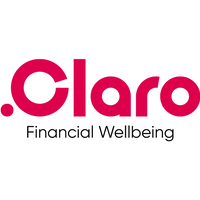How to provide benefits equality for deskless employees
Financial inequality in the workplace remains as big an issue as ever.
In 2022, households in the bottom 20% of the UK population had on average an equivalised disposable income of £13,218, while that of the top 20% was £83,687, according to The Equality Trust.
Frontline staff, including those who work in retail, construction and manufacturing, earn less than £27,000 a year on average compared with the national average of £33,000.
But financial inequality goes far beyond the income gap in the UK.
Paid less and fewer benefits
Frontline and deskless workers, such as supermarket staff and carers, are not only paid less than those who are office-based, but they are often on insecure contracts without similar access to company benefits. This is because company benefits are typically accessed via a workplace desktop computer and require a work email address.
What’s more, many companies base their benefits costing on a percentage of employees’ salaries. So the more they earn, the more benefits (or higher value services) they may be able to access. Or the smaller the salary, the fewer are on offer.
And it’s not fair.
Key workers
During the Covid-19 pandemic, 10.6 million deskless workers became key in the country’s survival, while those working in hospitality and events saw their industry disappear overnight.
Since then, as the world recovers, hundreds of thousands of underappreciated deskless workers, such as nurses and factory staff, have been on strike for better pay and conditions as the cost of living increases.
Financial inequality is complex and multi-faceted, and no-one could pretend to have all the answers. But there are things that can be done to move in the right direction.
According to research, 66% of working adults in the UK fall into the ‘advice gap’ - where they cannot afford financial advice or do not have the wealth to require it. Yet, most people could benefit from financial education and guidance to give them the skills and confidence to manage their money effectively.
Financial wellbeing ignored
Money worries are a leading cause of stress and affect people’s work, relationships and mental and physical health. Yet almost half (49%) of HR departments don’t see their staffs’ financial wellbeing as a priority, according to the The Chartered Institute of Personnel and Development (CIPD). The body is now calling for employers to take more responsibility for their workforces’ financial wellbeing and recognise the moral and business case.
Current financial wellbeing benefits need improving. Web-based platforms aren’t suitable for the 14 million frontline staff who don’t work at a desk and the educational content isn’t hitting the mark. More than 60% of employees say their financial wellbeing offering is not relevant or useful.
Claro Wellbeing offers a solution where frontline workers are the focus and delivers an engaging and accessible programme entirely over WhatsApp. Eight in 10 people use WhatsApp in this country, for an average of 37- 40 minutes a day. So using it to deliver financial benefits is a real leap towards better accessibility and engagement for hard-to-reach employees.
Using technology to close the financial inequality gap is a no-brainer. However, businesses need to broaden their approach and focus on the employees who, for too long, have fallen through the cracks.
Supplied by REBA Associate Member, Claro Wellbeing
A financial wellbeing benefit to support your team where it matters most








